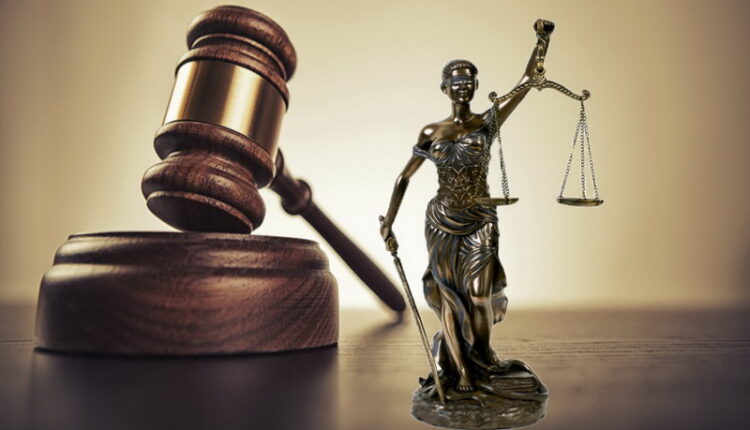Realizing Legal Certainty, RKUHP Needs to be Ratified
By: Dhanang Aswara
It should be noted that the Indonesian Criminal Code was drawn up in 1880, meaning that it has been 222 years since these rules have not been changed. So that it is necessary to renew through the Draft Criminal Code (RKUHP) for the sake of legal certainty that is relevant to the times.
It seems that the RKUHP was initiated in 1958 and began to be discussed in the DPR RI since 1963. The old KUHP had to be changed because it was made during the classical school era which used criminal law as a means of revenge.
Whereas currently, the orientation of criminal law is no longer on retributive justice or revenge, but is already oriented towards corrective justice, restorative justice and rehabilitative justice.
The new Criminal Code is certainly needed because currently Indonesia is not only entering the 4.0 era, but 5.0, namely the era of disruption in which the entire world order has changed and this has not been accommodated in the old Criminal Code.
In addition, the government also needs to harmonize and synchronize approximately 200 sectoral laws outside the Criminal Code which contain various criminal threats with various models and modifications. This of course must be synchronized so that there is no criminal disparity.
Harmonization is one of the 5 legal reform missions carried out by the RKUHP. Apart from harmonization, the other missions are decolonization, democratization, consolidation and modernization. However, the ratification of the RKUHP still faces a number of major challenges. Considering that Indonesia is a multi-ethnic, multi-religious and multi-cultural country.
Of course the effort to compile the Code in a heterogeneous society is not as easy as turning the palm of the hand. Every issue will definitely cause controversy, so the right formulation is needed to accommodate various interests.
In every process of forming rules or regulations including the RKUHP, debates are always coloring. This could be due to misinterpretation by some parties in digesting the sentences written in the RKUHP.
For example, regarding the rule that prohibits insulting the president, this rule is framed by some as a regulation that prohibits criticizing the president. In fact, after reviewing the regulation, the meaning is a prohibition against insulting the president, for example calling the president an animal.
Article 218 paragraph 1 states: “Anyone who publicly attacks the honor or dignity of the President or Vice President shall be punished with imprisonment for a maximum of 3 years and 6 months or a maximum fine of category IV”
What is meant by “attacking the honor or dignity of oneself” is basically an insult that attacks the good name or dignity of the President or the President in public, including insulting with letters, slandering and insulting with the aim of slandering.
Of course it is necessary to distinguish between insulting and criticizing, the rule does not prohibit anyone from criticizing the President.
Criticism means the process of analyzing and evaluating something with the aim of increasing understanding, expanding appreciation or helping work.
Meanwhile, contempt is an impolite statement, which of course can be subject to criminal sanctions.
Edward Omar Sharif Hiariej as Deputy Minister of Law and Human Rights (Wamenkumham) said, the criticism meant was for the public interest which was expressed with the right to expression and democracy.
Criticism in the public interest is criticism or opinion that differs from the policies of the president or vice president. Must be accompanied by good and bad policy considerations.
Criticism directed at the government as much as possible is constructive criticism and providing alternative solutions or criticism must be objective.
In addition, criticism directed at the president and vice president also does not demean or attack dignity, offend character or personal life.
The Minister of Law and Human Rights Yasonna Laoly has ensured that the article on insulting the President and Vice President has absolutely no intention of limiting criticism. Moreover, the existing laws and regulations in Indonesia also open up space for this criticism.
Yasonna firmly stated that the article on insulting the President and Vice President in the RKUHP is different from similar articles that had been annulled by the Constitutional Court. He considered that it was too liberal to allow insults to the President and Vice President.
Meanwhile, some people think that the RUKUHP is aimed at reviving colonialization, but in fact there is no specific study that is truly specific in disentangling what is called the legacy of westernized cultural values, especially in Indonesian law.
On the other hand, what is referred to as westernized cultural values themselves are also not clear, there are no clear indicators of what are referred to as westernized.
Legal certainty is of course needed, socialization before the ratification of the RKUHP has also been carried out, so it is hoped that legal certainty that is relevant to the times can be realized.
*) The author is a Legal Analyst at the Center for Archipelagic Studies
